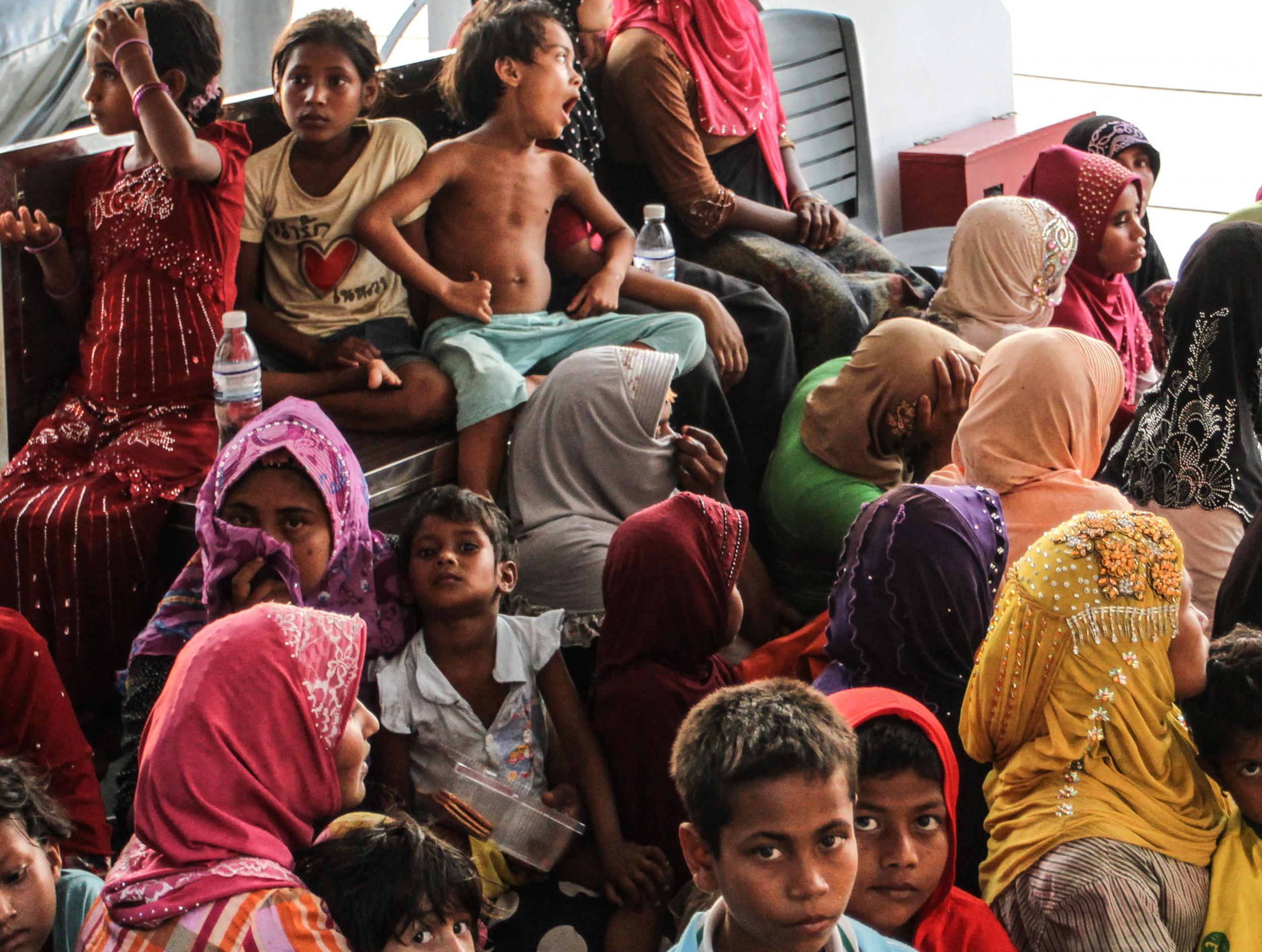'Benefits of destroying the Rohingya population exceed the costs' for Myanmar, former UN ambassador warns
Samantha Power calls for diplomatic pressure to be applied on government

The “benefits of destroying the Rohingya population exceed the costs” for Mynamar, a former US ambassador to the United Nations has said.
Samantha Power, who served in the role from 2013 to 2017, said there was a lack of diplomacy surrounding the crisis.
There have been accusations of ethnic cleansing in Myanmar after continued attacks on Rohingya Muslims forced hundreds of thousands of them to flee into neighbouring Bangladesh.
Speaking in Armenia at the Aurora Prize for Awakening Humanity, Ms Power, a former adviser to Barack Obama, said the Rohingya had been “systematically murdered, raped and deported from their country”.
“And no contact group has been formed, there has been no high level ministerial summit that I am aware of,” she said. ”There has been humanitarian systems, the United Nations Secretary General has used his voice, but if you actually want to change the calculus of a government that has decided to expel and destroy a group, which it looks like the Myanmar government and military have decided to do, you have to change the incentives for them.
She added: “Right now they think the benefits of destroying the Rohingya population exceed the costs. The only way that gets changed is through dealing with their sources of revenue, and through them feeling such concerted and sustained diplomatic pressure, not just from the UN secretary general, or the high commission for human rights, but from a coalition of diverse countries – the neighbours, bringing in China.”
More than 700,000 Rohingya Muslims have fled across the border to Bangladesh amid increasing violence. Representatives said they were disappointed that a UN agreement signed earlier this week did not address one of their key demands – citizenship of Myanmar.
Most refugees say they are desperate to go home, but fear going back unless they are given protection and citizenship.
Earlier this week Burmese and UN agencies signed an agreement that could – eventually – lead to the return of some of the 700,000 Rohingya who fled persecution in their homeland and are now crowded into makeshift camps in Bangladesh.
Asked what needs to happen in order for the situation to change, Ms Power said: “Diplomacy and then changing the calculus of government, which right now – like many governments around the world – feels a great sense of impunity.”
Rohingya Muslims have long been treated as outsiders in Myanmar, despite many of their families having lived in the country for generations.
They have been denied citizenship since 1982, effectively rendering them stateless, and forcing many to cross by land into neighbouring Bangladesh.
Agencies contributed to this report
Join our commenting forum
Join thought-provoking conversations, follow other Independent readers and see their replies
Comments
Bookmark popover
Removed from bookmarks